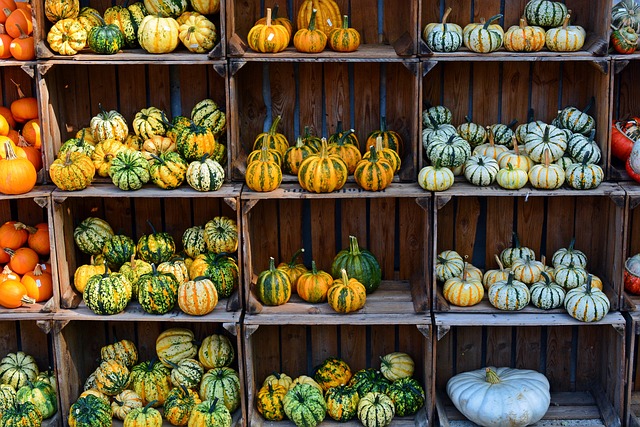Yard waste, encompassing leaves, grass clippings, branches, and garden trimmings, makes up a significant portion of municipal waste. Traditional disposal methods in landfills are environmentally harmful due to the production of methane, a potent greenhouse gas. Yard waste recycling through composting and mulching offers an eco-friendly alternative, transforming organic waste into soil amendments that benefit soil health, reduce reliance on synthetic fertilizers, and conserve natural resources. Communities can minimize their environmental impact by implementing yard waste removal and recycling programs, which not only aid in resource recovery but also support local biodiversity and contribute to greenhouse gas emission reduction. These initiatives are crucial for sustainable landscaping and environmental stewardship, promoting healthier gardens and soils while adhering to recycling principles. Advanced mulching techniques enhance both the ecological sustainability and aesthetic appeal of outdoor spaces by converting yard waste into high-quality mulch, reducing the need for synthetic chemicals and diverting waste from landfills. Yard Waste Removal and Recycling plays a vital role in these processes, ensuring that organic materials are repurposed effectively, supporting sustainable practices, and maintaining ecological balance. Community programs for yard waste removal and recycling provide eco-conscious disposal options, converting processed materials into compost for community gardens and public areas, thus advancing environmental sustainability and promoting a circular system that benefits both the local environment and global efforts to reduce waste.
Managing yard waste, particularly leaves during autumn, is a seasonal task with significant environmental implications. This article explores the multifaceted benefits of leaf collection and mulching, highlighting their positive impact on garden vitality and soil health. We will delve into innovative mulching techniques that not only elevate your yard’s aesthetics but also promote sustainability. Furthermore, we will outline effective strategies for efficient yard waste removal and examine how community initiatives and composting solutions contribute to recycling programs, enhancing environmental stewardship. Join us as we uncover the best practices in Yard Waste Removal and Recycling to maintain healthy landscapes and protect our ecosystems.
- Understanding Yard Waste Composition and Its Environmental Impact
- The Benefits of Leaf Collection and Mulching for Gardens and Soil Health
- Innovative Mulching Techniques to Enhance Your Yard's Aesthetic and Sustainability
- Effective Leaf Collection Strategies for Efficient Yard Waste Removal
- Yard Waste Recycling Programs: Community Initiatives and Composting Solutions
Understanding Yard Waste Composition and Its Environmental Impact

Yard waste, encompassing a variety of organic materials such as leaves, grass clippings, branches, and garden trimmings, represents a significant portion of the waste stream. Proper disposal of this material is crucial for maintaining environmental health and promoting sustainable practices. Traditional yard waste removal methods often involved transportation to landfills, where these organic materials would decompose anaerobically, contributing to methane emissions, a potent greenhouse gas. In contrast, yard waste recycling through composting or mulching offers a more environmentally friendly alternative. These processes convert organic matter into nutrient-rich soil amendments, which can improve soil quality and reduce the need for synthetic fertilizers. Furthermore, by incorporating yard waste removal and recycling programs, communities can mitigate landfill use and associated environmental impacts. These programs not only facilitate resource recovery but also support local ecosystems by returning valuable organic nutrients back into the soil, thus supporting the cycle of growth and decay that is vital to ecological health. Engaging in these practices helps to reduce greenhouse gas emissions, conserve natural resources, and promote biodiversity. As such, yard waste removal and recycling are not just waste management strategies; they are integral components of a sustainable and eco-conscious approach to managing our landscapes.
The Benefits of Leaf Collection and Mulching for Gardens and Soil Health

Engaging in regular leaf collection and mulching is a cornerstone practice for maintaining healthy gardens and soil, contributing significantly to yard waste removal and recycling efforts. Leaves, often seen as fall debris, actually serve as a rich organic resource when composted or utilized as mulch. By harnessing the decomposing process of leaves through leaf collection services, gardeners can create nutrient-dense material that enriches the soil, improving its structure and fertility. This process not only facilitates yard waste removal but also supports a sustainable cycle of nutrients within the garden ecosystem. The resulting compost or mulch helps to suppress weeds, conserve moisture, and maintain even soil temperatures, which can lead to healthier plant growth and reduced need for chemical fertilizers and pesticides. Moreover, by integrating these organic materials back into the soil, homeowners contribute to the reduction of yard waste in landfills, promoting environmental sustainability and supporting the principles of recycling and composting. Yard waste removal and recycling initiatives, therefore, play a vital role in community-wide environmental stewardship, making them an essential component of garden maintenance and soil health preservation.
Innovative Mulching Techniques to Enhance Your Yard's Aesthetic and Sustainability

Engaging in yard waste removal and recycling through innovative mulching techniques can significantly enhance both the aesthetic appeal and sustainability of your outdoor space. Traditional mulching methods have long been recognized for their role in conserving soil moisture, suppressing weeds, and improving soil fertility. However, with advancements in technology and a growing emphasis on eco-friendly practices, modern mulching has evolved to offer even greater benefits. For instance, chipper machines now come equipped with enhanced processing capabilities that allow for the transformation of yard waste into finely ground mulch that not only enriches your soil but also contributes to a more refined and visually appealing landscape design.
Moreover, these sophisticated mulching techniques are designed to handle a variety of organic materials, such as leaves, grass clippings, and twigs, effectively turning what was once considered waste into valuable resources for your garden. By utilizing these organic mulches, you can create a more sustainable and lush environment that supports plant growth while reducing the need for synthetic fertilizers and pesticides. Additionally, the process of yard waste recycling through mulching helps to lessen the environmental impact associated with yard waste disposal, contributing to a healthier planet by minimizing landfill use and promoting composting practices that return nutrients back into the soil. This not only beautifies your yard but also plays a part in a larger, sustainable ecosystem.
Effective Leaf Collection Strategies for Efficient Yard Waste Removal

Effective leaf collection strategies are crucial for maintaining a healthy landscape and ensuring efficient yard waste removal. Homeowners and municipalities alike can benefit from employing methods that not only clear leaves efficiently but also recycle them into valuable resources. One such strategy involves regular raking or blowing of leaves onto designated collection areas, which can be easily accessed and removed without disrupting garden beds or other landscaping features. This approach prevents leaves from becoming matted or compressed, which could hinder decomposition and nutrient recycling.
Utilizing a combination of leaf vacuums and mulching mowers can further enhance the efficiency of yard waste removal and recycling. These tools shred leaves into fine particles that break down more quickly, enriching the soil with essential organic matter while reducing the volume of yard waste. Additionally, municipal composting programs often accept leaf debris, converting it into nutrient-rich compost for community gardens and public green spaces. By adopting these strategies, communities can effectively manage leaf litter, reduce waste, and contribute to sustainable environmental practices.
Yard Waste Recycling Programs: Community Initiatives and Composting Solutions

Yard waste removal and recycling play a pivotal role in maintaining the health and aesthetics of residential landscapes while promoting environmental sustainability. Many communities have established comprehensive yard waste recycling programs, offering residents convenient and eco-friendly solutions for their lawn debris. These initiatives typically include seasonal curbside pickup services where residents can leave behind grass clippings, leaves, twigs, and other organic matter. By collecting and processing this yard waste, communities transform what was once considered waste into valuable composting material, enriching soil health and reducing the need for chemical fertilizers. This not only supports local ecosystems but also contributes to a reduction in greenhouse gas emissions that would otherwise be released during the decomposition of organic matter in landfills.
Furthermore, these community-driven yard waste recycling programs often provide composting solutions that cater to both individual gardeners and larger municipal or commercial properties. The compost produced through these programs can then be returned to the community for use in public parks, community gardens, and school grounds, thereby closing the loop on organic matter and fostering a resilient local environment. These initiatives underscore the importance of sustainable waste management practices and demonstrate how collective action can significantly impact environmental conservation efforts. Residents are encouraged to participate in these programs by properly segregating their yard waste and taking advantage of the provided composting resources, thus contributing to the overall well-being of the community and the planet.
Effective yard waste removal and recycling practices, as outlined in this article, present a multifaceted approach to enhancing garden vitality, preserving soil health, and mitigating environmental impact. From understanding the composition of yard waste to adopting innovative mulching techniques, the integration of these strategies not only improves the aesthetic appeal of landscapes but also contributes significantly to sustainable practices within communities. Homeowners and municipalities alike can benefit from implementing leaf collection and mulching programs, which efficiently transform waste into valuable resources. These initiatives underscore the importance of responsible yard waste management, promoting a healthier environment for generations to come.



